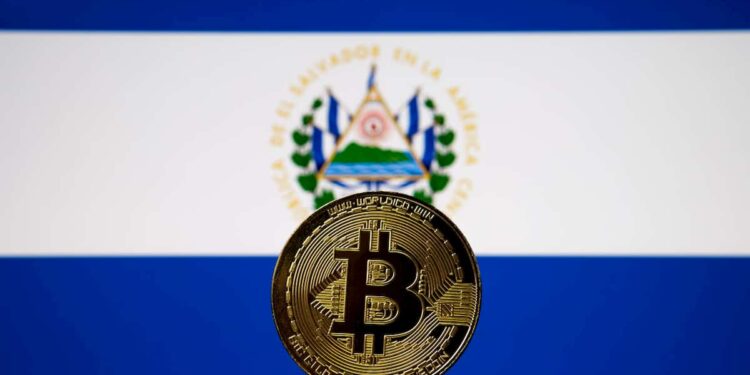While doubtlessly forward-thinking, El Salvador’s Bitcoin experiment has not gone over well with international financial and regulatory bodies — the International Monetary Fund (IMF) has been a key critic since the beginning. The international body made renewed calls for reforms during program talks on October 3.
El Salvador is a pioneer in terms of cryptocurrency adoption. The Central American country was the first state to adopt Bitcoin (BTC) as legal tender, having done so in September 2021.
At present, the country holds 5,892 coins, worth $348,544,862 at press time, having mined at least 474 coins in 2024 alone through the use of a volcano-powered geothermal plant at Tecapa.
At the time of writing, BTC is trading at around $61,280, having rallied by 1% over the course of the day, bringing weekly losses down to 6.52%. The cryptocurrency is still up 8.42% on a monthly basis.
1-month BTC price chart. Source: Finbold
President Bukele’s policies have enjoyed varying degrees of support — although research from the University of Central America (UCA) in 2021 revealed that, at the time, roughly 77% of Salvadorans considered the country’s Bitcoin adoption a failure.
However, the IMF’s stance on the issue is not one of petulant non-collaboration. While the body has been overwhelmingly critical, urging restraint and softer adoption, it has maintained dialogue with the Salvadoran government, notably providing technical assistance regarding usage statistics in 2022.
The agency also said that risks over the country’s embrace of the cryptocurrency had not yet materialized — having stated as much in a blog post dated February 10, 2023, at a time when the currency was trading at just $21,820.
A new round of Bitcoin dialogue
During a press conference, spokesperson Julie Kozack stated that the IMF has recommended narrowing the scope of the law, along with measures for strengthening regulation and oversight while simultaneously reducing public sector exposure to the cryptocurrency.
On a more positive note, Kozack opined that the country’s 2025 budget proposal was a good step — highlighting, however, the need for strong implementation. An August 29 interview with TIME magazine also included President Bukele stating that, while BTC adoption was a net positive in his eyes, the widespread adoption he had hoped for had not yet come to pass.
While things might seem to be at an impasse at first glance, it should be noted that both parties in the dialogue have softened their stances in recent years.
Calls for policy changes and oversight are a far cry from the IMF’s 2022 call to discontinue Bitcoin’s use as legal tender in El Salvador altogether, while President Bukele’s admission of shortcomings and the Fund’s positive estimation of the country’s 2025 budget point to progress in terms of compromise.
The future of Bitcoin in El Salvador
Even the most enthusiastic cryptocurrency advocates concede that widespread adoption is a complicated issue beset by many predictable and perhaps even more unpredictable pitfalls. Talks between the IMF and El Salvador are unlikely to result in sweeping changes toward either direction — but the aforementioned signs of compromise are certainly promising.
The adoption of digital currencies by state actors and sovereign countries opens up a veritable can of worms — notably, El Salvador was the victim of a cybersecurity incident in which the source code for the country’s wallet, Chivo, was hacked back in April.
Lastly, it’s important to remember that a lone country’s adoption of BTC as legal tender cannot be reliably indicative of how widespread, global adoption by states would unfold.
Source link : http://www.bing.com/news/apiclick.aspx?ref=FexRss&aid=&tid=66fff474add6447389ed8d35d39ce9f3&url=https%3A%2F%2Ffinbold.com%2Fimf-urges-el-salvador-to-scale-back-bitcoin-law%2F&c=13956521805158314408&mkt=en-us
Author :
Publish date : 2024-10-04 01:54:00
Copyright for syndicated content belongs to the linked Source.






